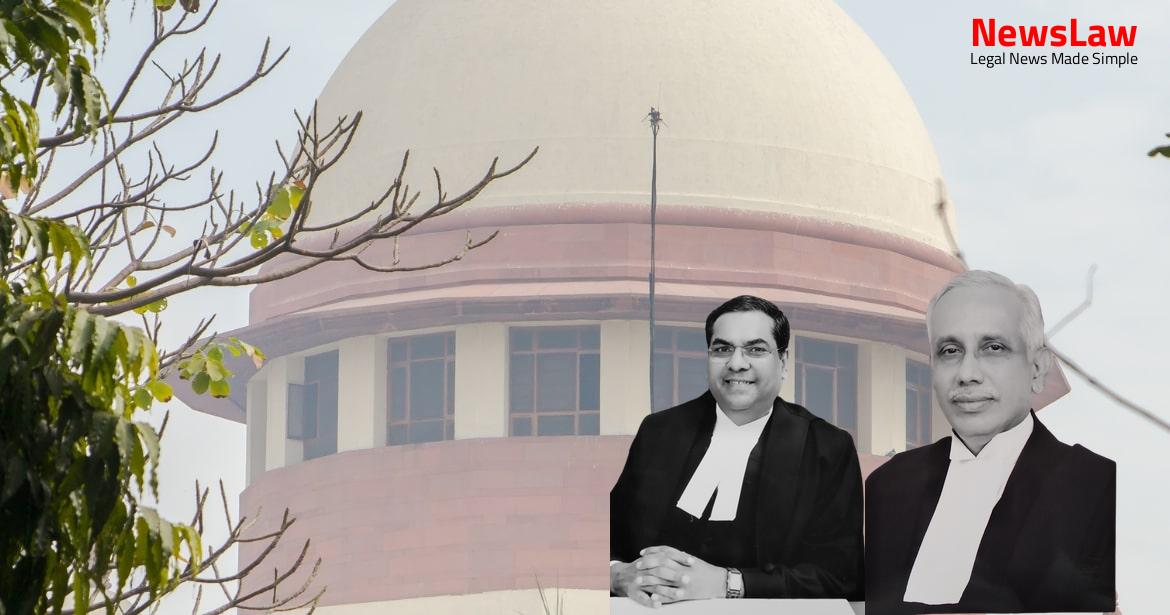The case of Shrirang Agro Chemical Pvt. Ltd. v. Insurance Co. Ltd. revolves around the insurance claim dispute where the Appellant, Shrirang Agro Chemical Pvt. Ltd., filed a complaint against Insurance Co. Ltd. The National Commission dismissed the Appellant’s complaint citing overvaluation of factory premises and lack of proper licensing as reasons for repudiation. Let’s delve into the details of the case and the crucial legal arguments presented by both parties.
Facts
- Shrirang Agro Chemical Pvt. Ltd. was engaged in manufacturing CMAC
- The factory premises became a sick unit and was auctioned off by the MSFC
- The Appellant continued the insurance coverage taken by the previous company
- The Respondent repudiated the Appellant’s claim based on reports from three surveyors
- A Fire and Special Perils Policy was issued by the Respondent insuring the factory premises
- The National Commission dismissed the Appellant’s complaint citing overvaluation of factory premises and lack of proper licensing as reasons for repudiation
- The Appellant started production of CMAC in November 2001
Also Read: Interpretation of Will Clauses in Property Dispute
Issue
- Two main issues identified in the case
- First issue: Whether the Appellant was not duly licensed to store Hexane, breaching Clause 1 of the policy
- Second issue: Whether the Appellant overvalued the subject factory during insurance, constituting fraud under Clause 8 of the policy
Also Read: Preservation of Open Spaces in Development Plans
Arguments
- Learned Senior Counsel for the Appellant argued against the appointment of the third surveyor, S.B. Nalluri & Associates.
- The second surveyor’s report ruled out any mala fides on the part of the Appellant, making the appointment of a third surveyor unnecessary.
- The notification dated 21.11.2001 exempted the Respondent from obtaining a license for storing up to 20 kilolitres of Hexane.
- The second surveyor’s report indicated that the factory premises held over 90 kilolitres of Hexane, out of which 79.152 kilolitres had suffered damage.
- The Appellant was argued to be exempt from obtaining a license for storage of Hexane based on the notification issued under the Essential Commodities Act.
- The exemption under the notification could not be relied upon in the current situation.
- The National Commission’s finding regarding overvaluation of the factory by the Appellant for insurance was supported by the learned Counsel.
Also Read: Jurisdictional Limits and Statutory Compliance in Development Planning
Analysis
- The Respondent relied on Article 7 of the 1976 Rules to argue the requirement of a license for storing petroleum Class A.
- The Appellant failed to obtain a license under the 1976 Rules for storing Hexane, which was more than 20 kilolitres.
- The non-disclosure of the absence of a license was deemed a violation of Condition 1 of the insurance policy.
- The flash point of n-Hexane being below 23°C falls under petroleum Class A, necessitating a license.
- The Appellant’s exemption claim under the 2000 Order did not relieve it from the need to obtain a license under the Petroleum Act and 1976 Rules.
- The premise that the Appellant stored Hexane without the required license was a significant grounds for the claim repudiation.
- The second surveyor’s confirmation of over 90 kilolitres of Hexane stored, with a significant amount damaged, played a crucial role in the decision.
- A license under Article 6 of the 1976 Rules was deemed necessary for the storage of Hexane, which the Appellant failed to acquire.
- The clause mentioned in the policy regarding fraudulent claims and forfeiture of benefits is reiterated.
- The necessity of a license for acquiring, storing, or selling solvents is highlighted.
- An exemption for a license requirement is discussed for specific quantities of solvents.
- The background and scheme of the 2000 Order related to essential commodities control is explained.
- The powers of the Central Government under the Essential Commodities Act are outlined.
- The specific objectives and conditions under which orders can be passed under Section 3(1) are detailed.
- The provision under Section 3(2)(d) allowing for regulation of storage through licenses is explained.
- The 2000 Order is interpreted as a licensing regime established under the Essential Commodities Act.
- Details from Form XIV regarding storage of petroleum under specific conditions are provided.
- An exception for licensing requirements for small quantities of petroleum Class A is discussed.
- National Commission’s conclusion that the repudiation of the claim was justified for breach of Clauses 1 and 8 of the insurance policy is upheld.
- The appointment of the third surveyor, while not a crucial factor, does not affect the outcome of the case.
- The findings of the third surveyor supplement the reasoning of the National Commission regarding the absence of a license under the Petroleum Act and 1976 Rules.
- The Appellant did not claim to possess the necessary licenses for the storage of Hexane, which further supports the conclusion reached by the National Commission.
Decision
- The court found that the defendant violated the plaintiff’s rights by committing the act of trespass.
- The defendant failed to produce any evidence to support their claim of right to the property in question.
- The court ordered the defendant to cease the trespassing immediately and vacate the premises.
- The plaintiff was awarded damages for the harm caused by the defendant’s actions.
Case Title: M/S. BASPA ORGANICS LIMITED. Vs. UNITED INDIA INSURANCE COMPANY LIMITED. (2020 INSC 190)
Case Number: C.A. No.-013401-013401 / 2015



